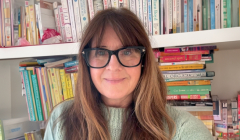
The Year Ahead: Breaking the taboo of gendered ageism at work
Let’s make 2025 the year we stop merely talking about breaking the ageism taboo and start building workplaces that reflect the full spectrum of talent and opportunity.

"I like learning new stuff because in theory you’re meant to be the expert or teacher at this stage, but I get as much of a kick out of being a pupil, learning and then sharing those learnings."

We love this thing called the Audience Age. I love the tension of it because consumers are never more empowered, as in one person can literally change the world on the internet, but at the same time, never more disengaged with multiple screens, channels, forms of entertainment, distractions. They haven’t got time for brands and complicated messages.
David Frymann
I like learning new stuff because in theory you’re meant to be the expert or teacher at this stage, but I get as much of a kick out of being a pupil, learning and then sharing those learnings.
David Frymann
Looks like you need to create a Creativebrief account to perform this action.
Create account Sign inLooks like you need to create a Creativebrief account to perform this action.
Create account Sign in